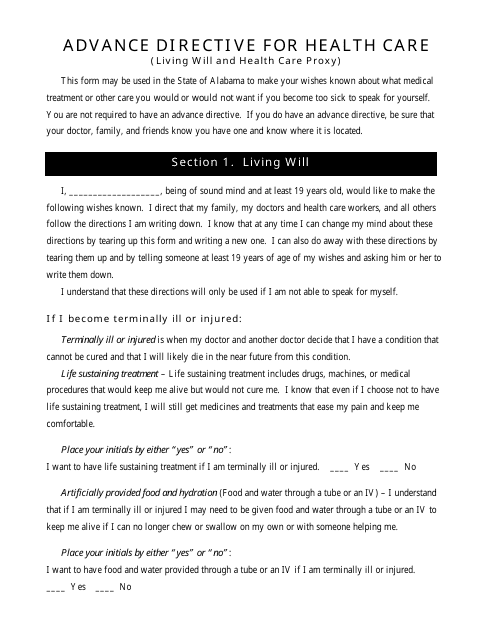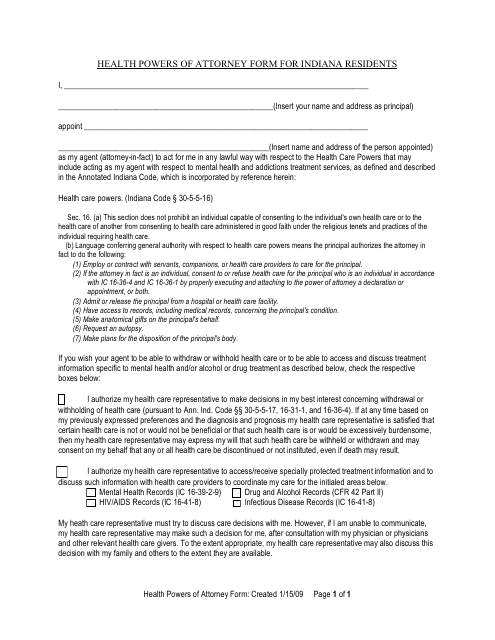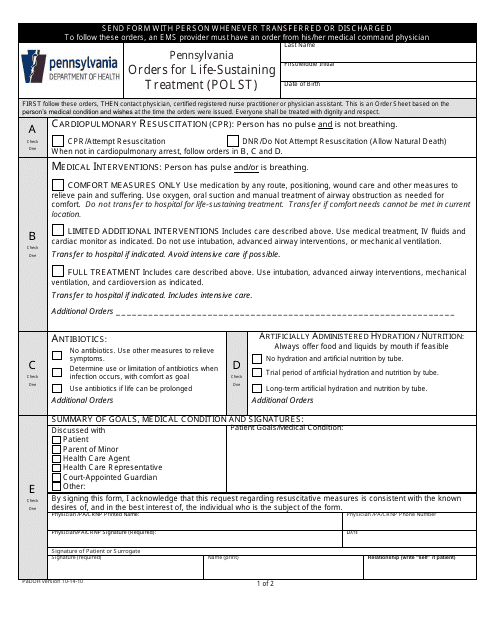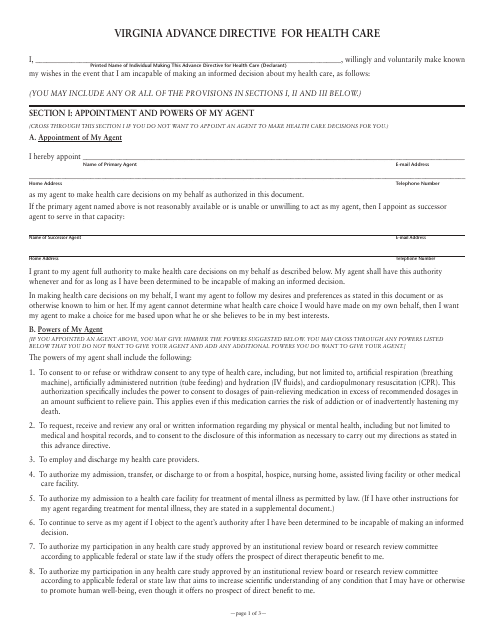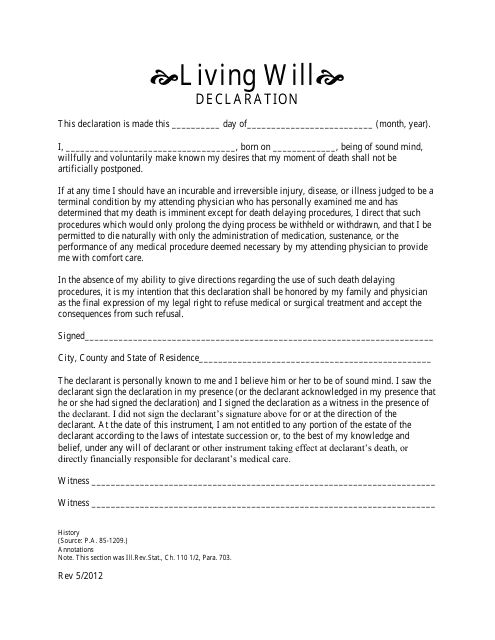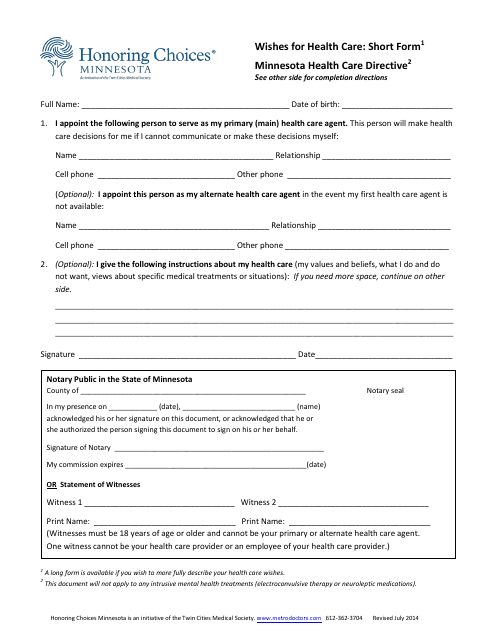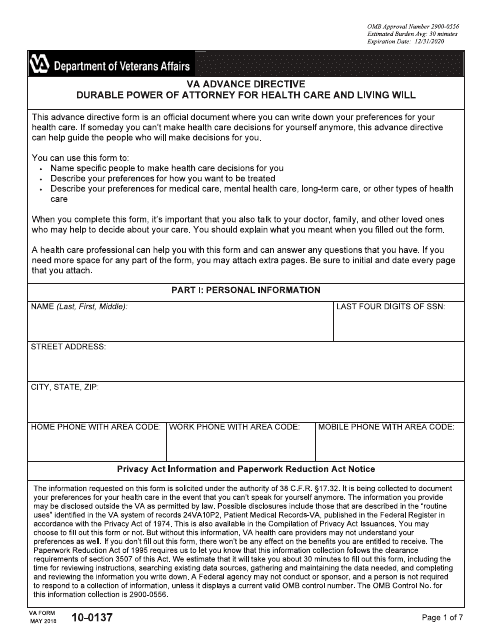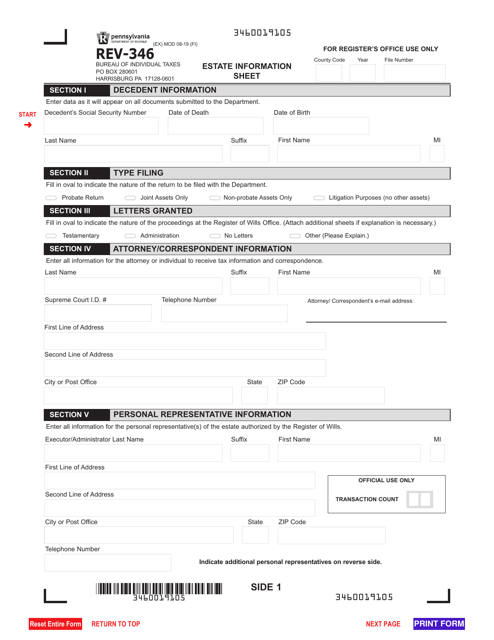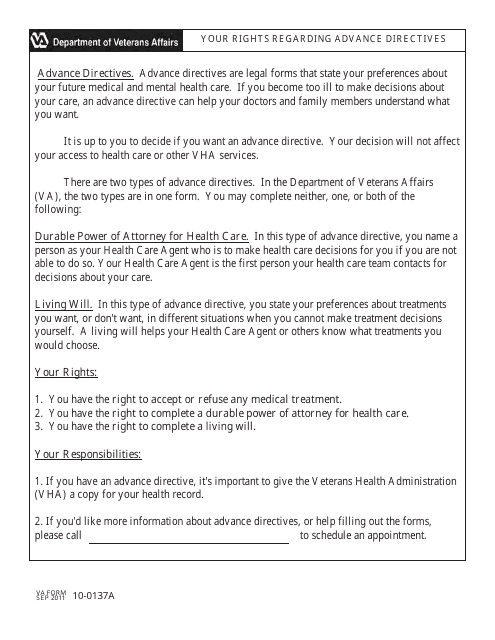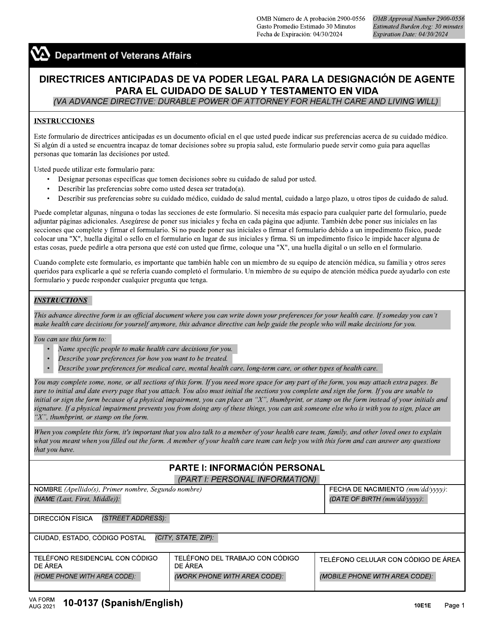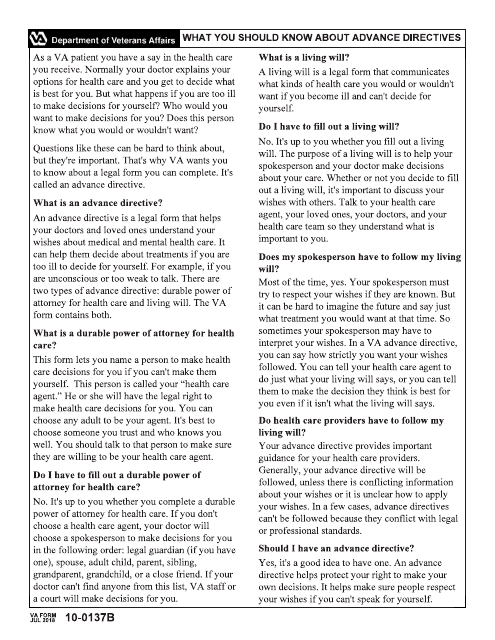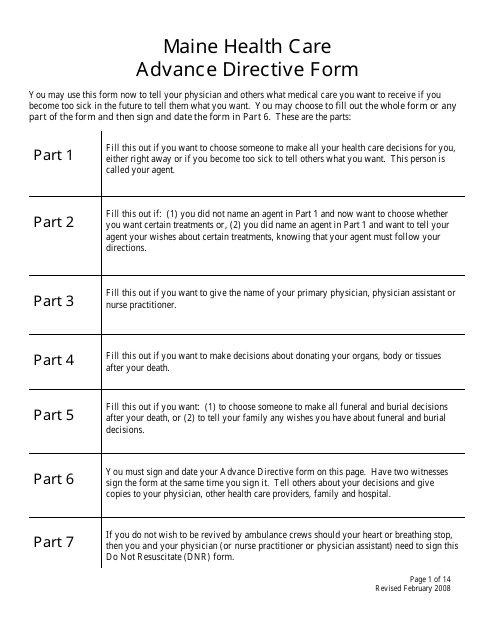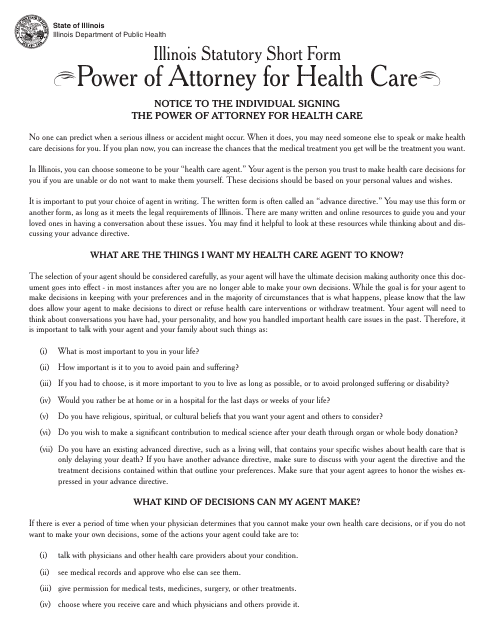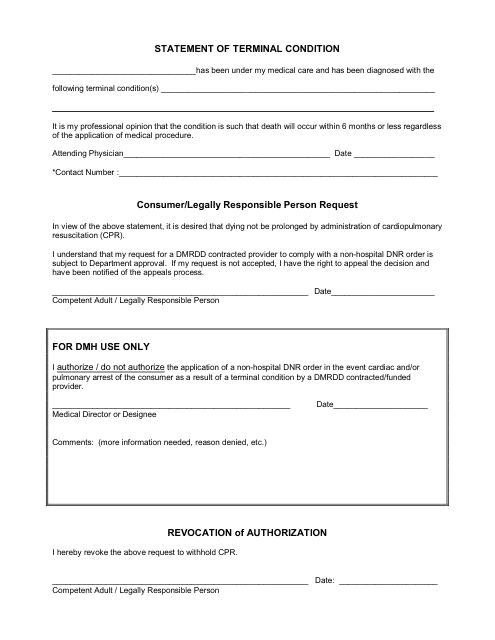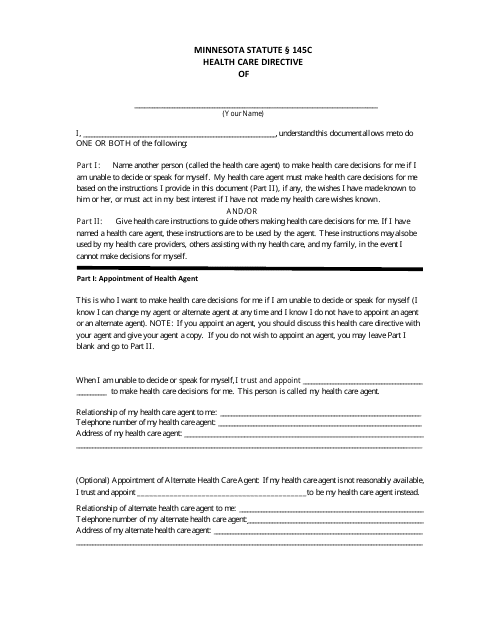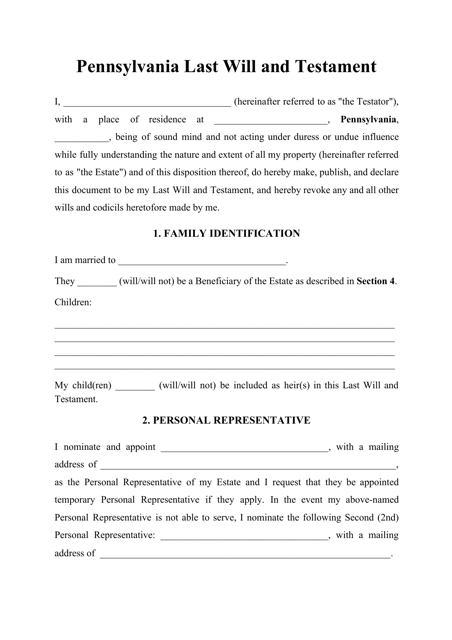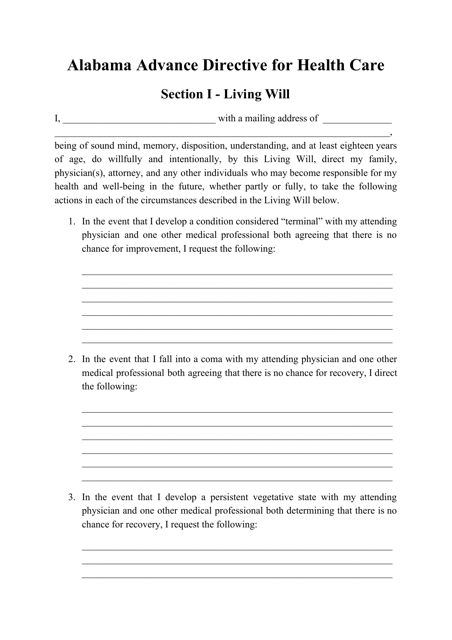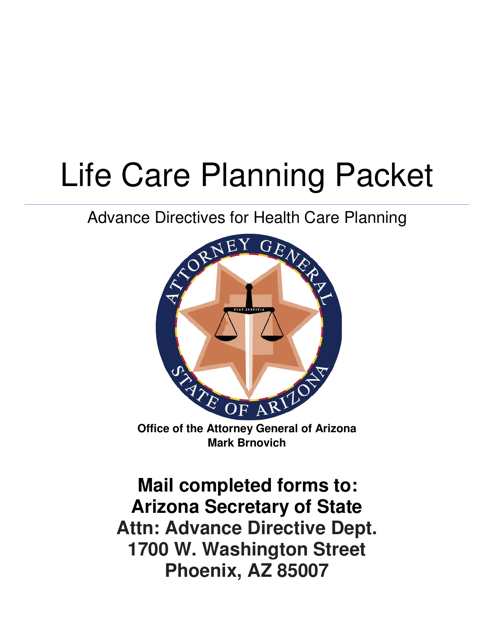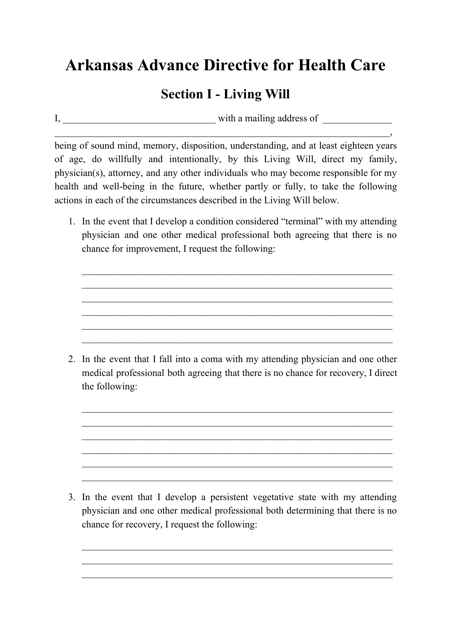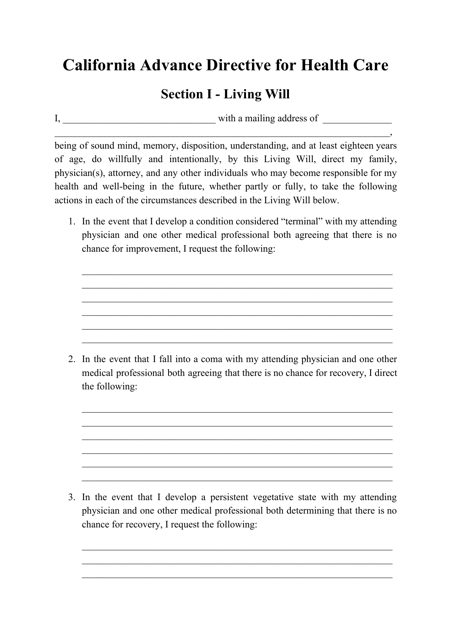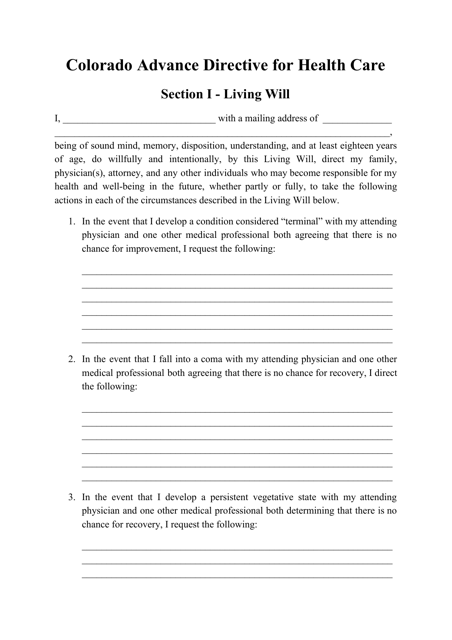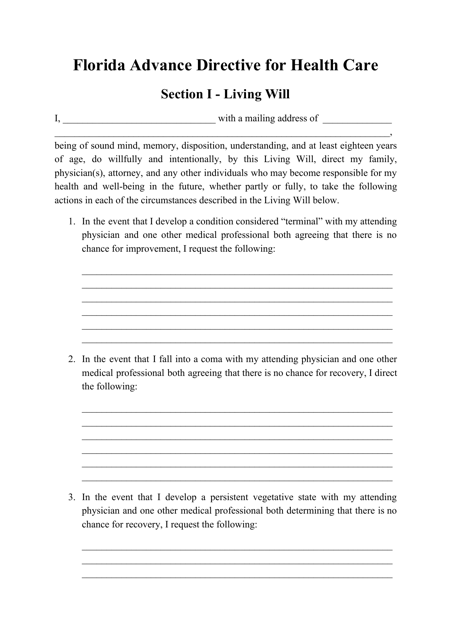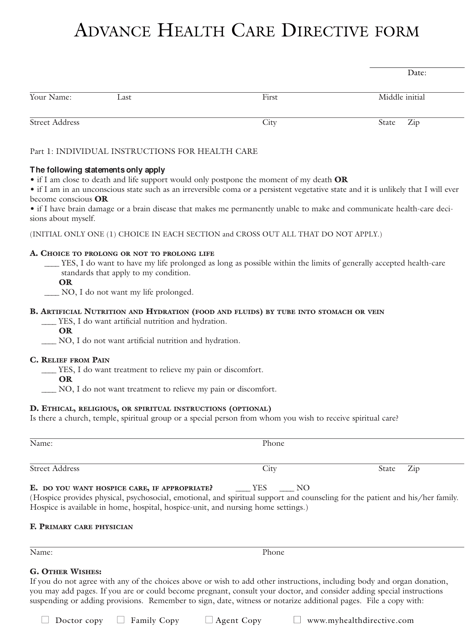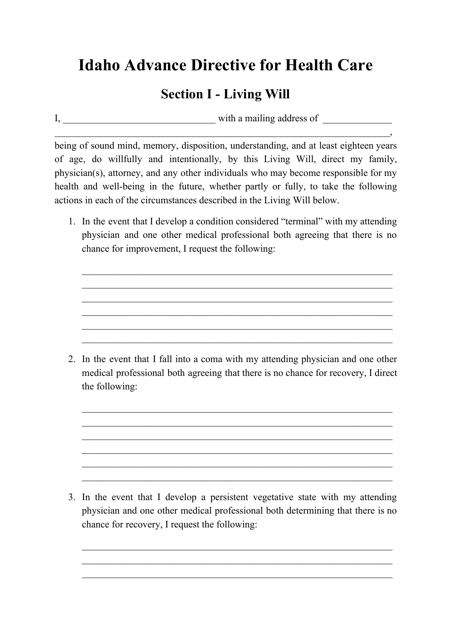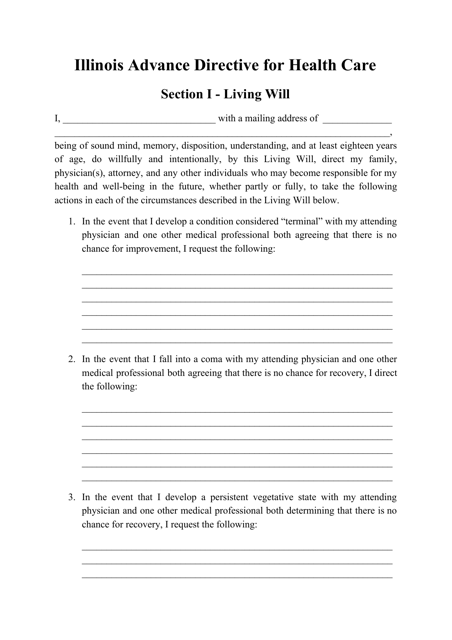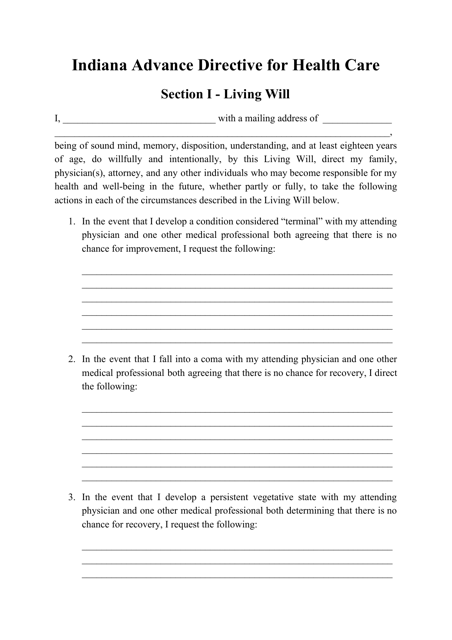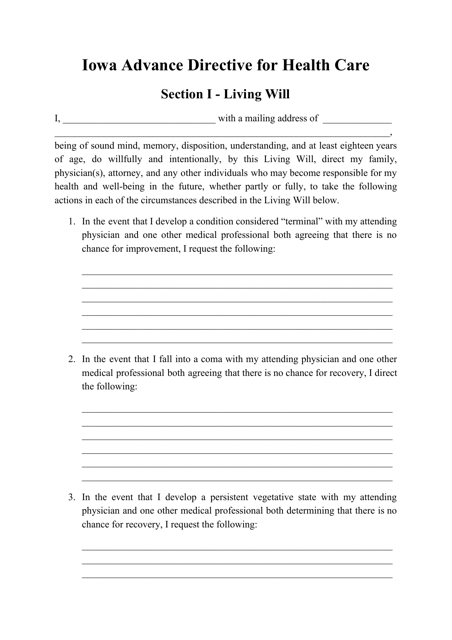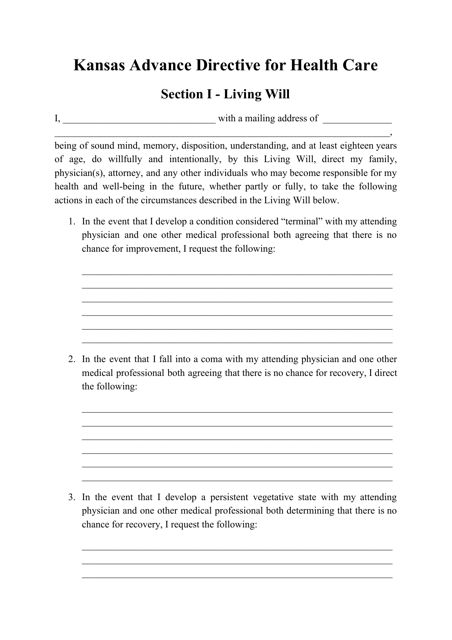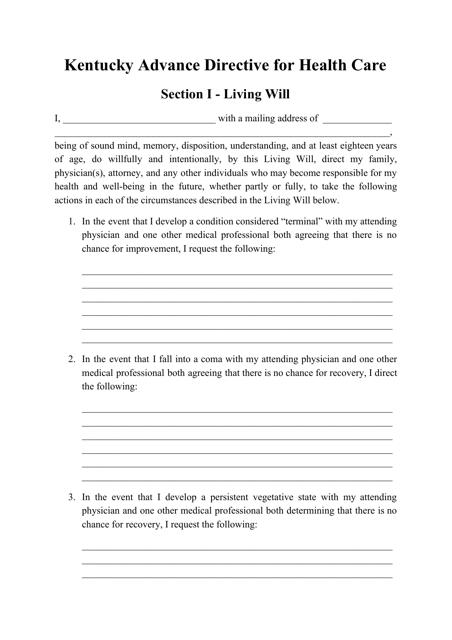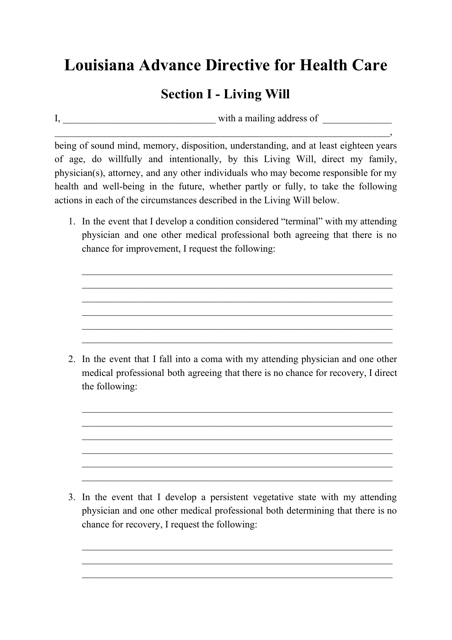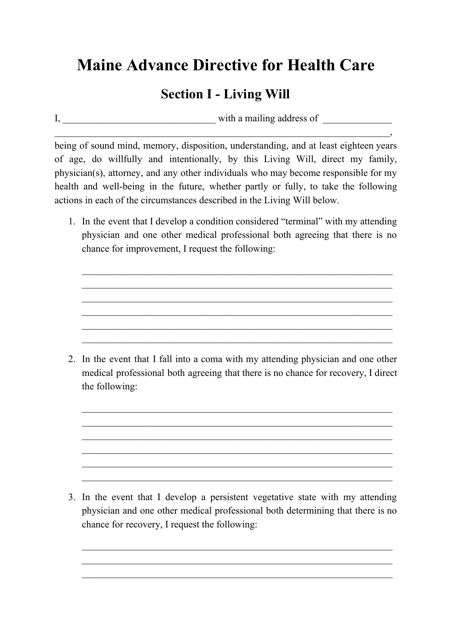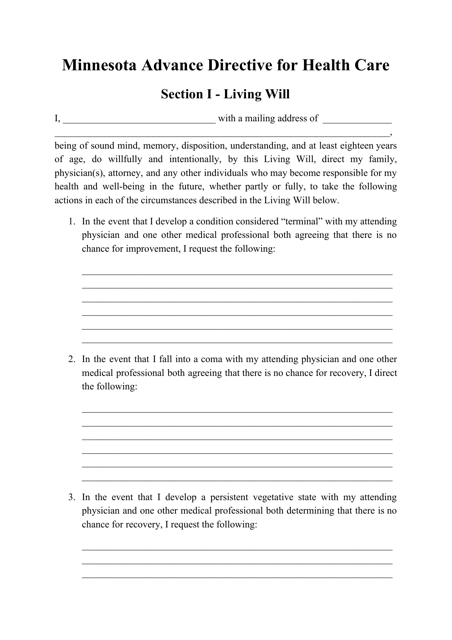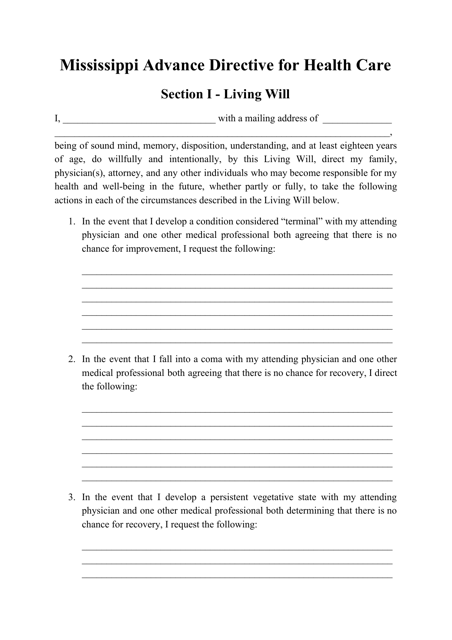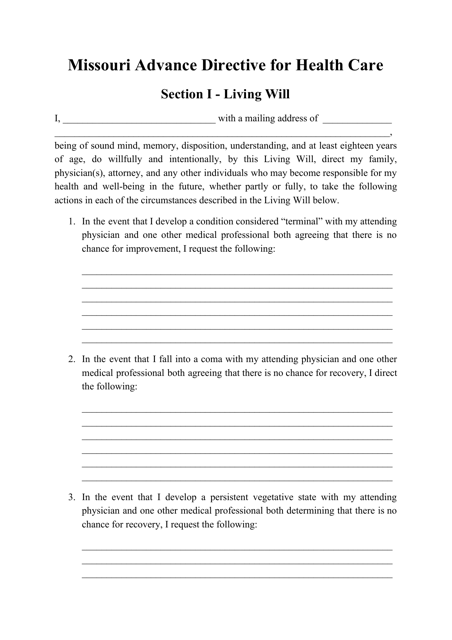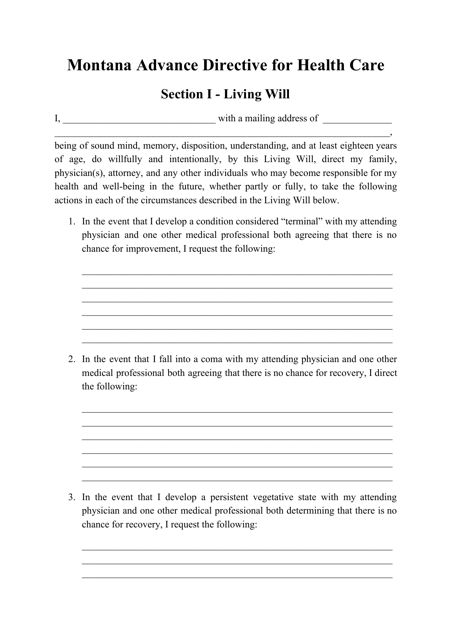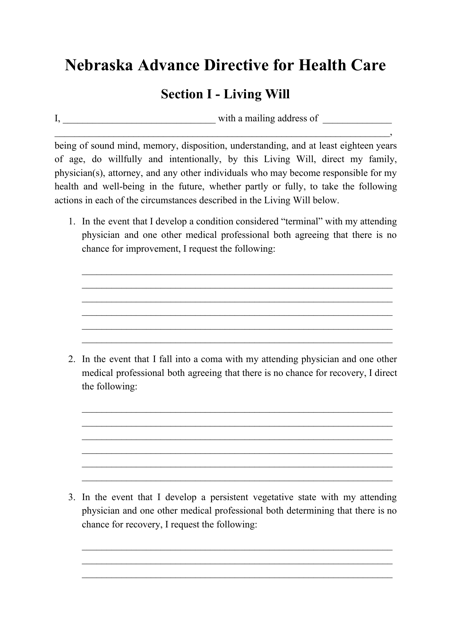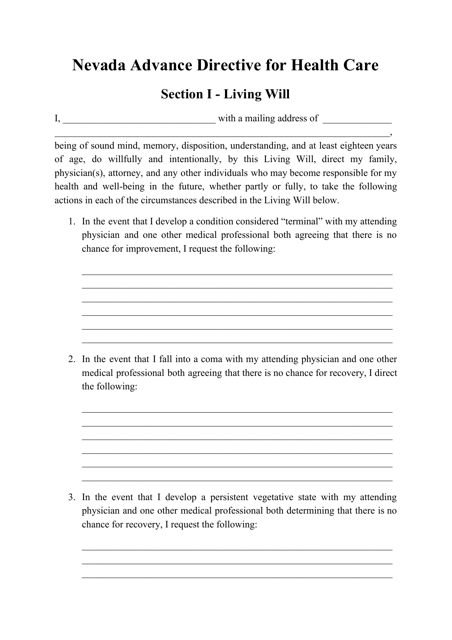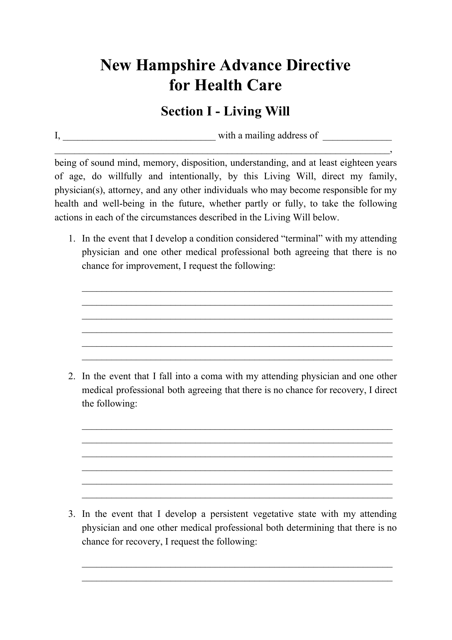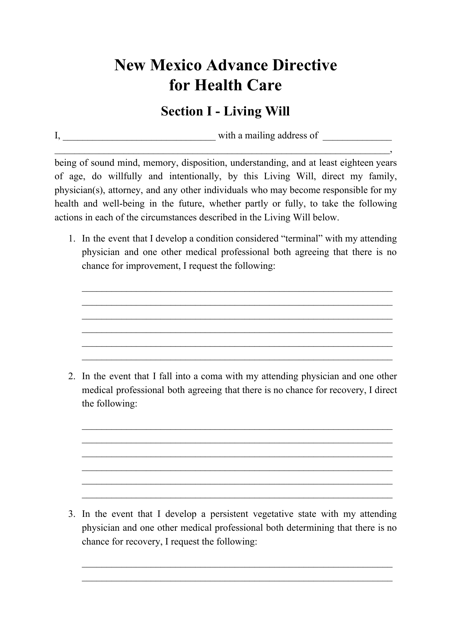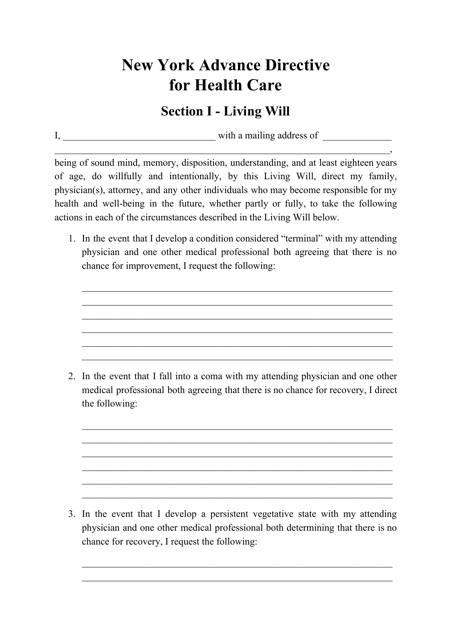Living Will Forms by State
A Living Will - commonly confused with an Advance Directive or Advance Health Care Directive - is a document that allows you to enforce your end-of-life medical treatment decisions. It specifies all of the actions that should be taken for your health and is meant to eliminate any misunderstanding if and when you are no longer able to speak for yourself due to a terminal illness or injury.
Fillable free Living Will forms and templates are available for download and digital filing through the links below. If you do not know where to begin, you can create your own Living Will using a customizable template. This form still needs to be signed in the presence of witnesses and notarized by a notary public to be legally effective. Always consult a lawyer if you have any difficulties with drafting any will-related paperwork.
What Is a Living Will?
A Living Will - not to be confused with a Last Will - is a legal document intended to clarify and ensure your wishes regarding health care and treatment in case of temporary or permanent incapacity. Most of them provide the option of choosing and appointing an agent to monitor that your wishes are carried out correctly. It is very important to select an agent who has your best interests at heart and will be comfortable with their future duties. A family member or close relative usually takes on the role of the health care agent, but that is not always the case. You can choose any legal adult - except for your doctor - or any other individual that is not directly involved in providing you with medical care.
It is strongly recommended to talk these plans over with your primary physician to make sure that they have no ethical and religious objections to following your instructions. Otherwise, the doctor may be forced to transfer your case to a colleague who has no reservations about these issues but who you may not be familiar with.
Living Will Forms by State
The specific Living Will forms vary in each of the fifty states. Though in many states even an unapproved will have a persuasive effect, it is strongly advised that all wills be made valid according to the laws of your state. Thus, it is important to check and update your paperwork in case you move to any other state for permanent residence.
Do I Need a Living Will?
Every of-age individual is strongly advised to have a Living Will. This document is your sole guarantee that the decisions made in sound mind will be respected in a situation when you may not be able to re-affirm them. This relates to medical treatment but may also include:
- Specific funeral plans you want to clarify beforehand;
- The wish to be attended by a priest or any other church representative;
- Instructions concerning organ or tissue donation, and any additional actions you want to specify.
What’s more, creating the actual document will relieve your family of the stress of making difficult and controversial decisions. Besides, in case you do not provide your relatives with the appropriate authority via an Advance Healthcare Directive, they will need to obtain a court order to make medical treatment decisions on your behalf.
How to Make a Living Will?
Individuals need to carefully think over and answer several crucially important questions when creating a Living Will:
- Are dialysis and blood transfusion an acceptable option?
- Should they be placed or kept on life support?
- Would they like to receive artificial nutrition in situations when you can not manage to eat or drink on your own?
- Would they like to receive comfort care? Comfort care is the end-of-life symptom management, meant to alleviate pain, breathing issues, digestive issues, and other common concerns. The location where this care will be provided can and should be chosen by the patient.
- Should a doctor perform CPR in cases of heart failure? This clause, commonly referred to as the Do Not Resuscitate (DNR) order, states your individual preference on whether or not you would like to have the medical staff to do everything possible to keep your alive.
All of these questions should be thoroughly discussed beforehand with family and a health care professional.
Living Will Vs. Advance Directive
Despite the fact that these terms are often used as interchangeable, a Living Will is only one of the many kinds of Advance Directive. Its other form is a Durable Power of Attorney.
A person is advised to have both of them as comprehensive instructions for providing end-of-life medical care. In some cases, however, these two forms can be combined in one so-called advance health directive form. The Five Wishes format, created by Aging With Dignity (a US-based non-profit) can be considered as a simplified example of a document that combines a Living Will with a health care power of attorney.
Living Will Vs. Power of Attorney
Though both of these documents are intended to spell out your end of life decisions and appoint a person to make medical decisions on your behalf, they are in fact different. Actually, it is better to have both of them.
A Living Will can help you express your end-of-life wishes in detail. However, it is impossible to predict and pre-plan every situation and many people prefer to not go into details regarding the case. It is good to have a person you trust to be able to legally make decisions on your behalf when you are temporarily or permanently disabled.
The document that appoints this person is called a durable healthcare power of attorney. Unlike the agent assigned by a legal Living Will, who can only monitor how the wishes expressed in the will are performed, the agent defined by power of attorney has the authority to fully make decisions on your behalf. Keep in mind that the POA covers only situations of extreme medical necessity and lasts until you are capable to make your own decisions.
Documents:
133
This document is used for planning your medical care in advance, specifying your preferences and appointing a healthcare proxy to make decisions on your behalf. It is specific to the state of Alabama.
This document allows Indiana residents to choose someone to make healthcare decisions on their behalf if they are unable to do so.
This document is used in Pennsylvania to record a person's end-of-life medical treatment preferences. It helps ensure that individuals receive the life-sustaining treatment they desire.
This Form is used for creating an Advance Directive for Health Care in the state of Virginia. It allows individuals to make decisions about their medical treatment in the event they become unable to communicate their wishes.
This document is used in Illinois to express an individual's wishes regarding medical treatment if they become unable to make decisions for themselves.
This form is used for expressing your wishes regarding healthcare decisions in Minnesota, in accordance with the Honoring Choices program.
This form is a Power of Attorney (POA) form used by the Department of Veterans Affairs (VA). This form is used to designate a health care representative that will be able to act on behalf of the person in case they will no longer be able to make decisions themselves.
This document provides information about your rights regarding advance directives.
This document provides information about advance directives, outlining what they are and why they are important. It also offers guidance on how to create and update advance directives.
This form is used for creating an advance directive in the state of Maine. An advance directive is a legal document that allows individuals to specify their healthcare preferences and appoint someone to make medical decisions on their behalf if they become unable to do so.
This document grants someone the authority to make health care decisions on your behalf in the state of Illinois.
This document is used in Missouri to establish and confirm a person's terminal condition, which is a medical condition that is irreversible and expected to result in death within a short period of time. It helps in making important decisions regarding end-of-life care and treatment options.
This document outlines an individual's wishes and preferences for medical treatment and care in the state of Minnesota. It allows them to appoint a healthcare agent and specify their decisions regarding life-sustaining treatment and end-of-life care.
Use this Pennsylvania-specific form if you need a document that determines the distribution of the deceased person's possessions and property.
This legal form encompasses the orders concerning your wishes about your future medical care in the state of Alabama. The document comes into play in the event of severe medical situations in which you are not able to communicate your wishes or make decisions.
Download this Arizona-specific Advance Directive for Health Care and consult your Area Agency on Aging, a lawyer, or financial planner before signing.
This Arkansas document encompasses the orders concerning your wishes about your future medical care. The document comes into play in the event of severe medical situations in which you are not able to communicate your wishes or make decisions.
Use this document to give directives surrounding your future medical care in the state of California.
Download this Colorado form for a potential situation when a medical issue leaves you unable to express your wishes about medical treatment.
Use this form in the state of Florida for a potential situation when a medical issue leaves you unable to express your wishes about medical treatment.
Download this Hawaii form to state your preferences for your healthcare in the event you are no longer able to decide for yourself.
This form is used in Idaho as part of the patient's medical records and determines health care measures to be taken in the event of the patient's mental or physical incapacity.
Use this Illinois-specific form for cases when you are not able to communicate your wishes or make decisions. These may include directions regarding the use of mechanical ventilation or feeding tubes, as well as certain surgeries and medications.
Use this form in the state of Indiana for a potential situation when a medical issue leaves you unable to express your wishes about medical treatment.
These are Iowa-specific written instructions about future medical care should you become unable to make decisions (for example, unconscious or too ill to communicate).
Download this Kansas form to state your preferences for your healthcare in the event you are no longer able to decide for yourself.
This form is used in Kentucky as part of the patient's medical records and determines health care measures to be taken in the event of the patient's mental or physical incapacity.
Use this Louisiana-specific form for cases when you are not able to communicate your wishes or make decisions. These may include directions regarding the use of mechanical ventilation or feeding tubes, as well as certain surgeries and medications.
Use this form in the state of Maine for a potential situation when a medical issue leaves you unable to express your wishes about medical treatment.
Use this Minnesota-specific form for cases when you are not able to communicate your wishes or make decisions. These may include directions regarding the use of mechanical ventilation or feeding tubes, as well as certain surgeries and medications.
Use this form in the state of Mississippi for a potential situation when a medical issue leaves you unable to express your wishes about medical treatment.
These are Missouri-specific written instructions about future medical care should you become unable to make decisions (for example, unconscious or too ill to communicate).
Download this Montana form to state your preferences for your healthcare in the event you are no longer able to decide for yourself.
This form is used in Nebraska as part of the patient's medical records and determines health care measures to be taken in the event of the patient's mental or physical incapacity.
Use this Nevada-specific form for cases when you are not able to communicate your wishes or make decisions. These may include directions regarding the use of mechanical ventilation or feeding tubes, as well as certain surgeries and medications.
Use this form in the state of New Hampshire for a potential situation when a medical issue leaves you unable to express your wishes about medical treatment.
Download this New Mexico form to state your preferences for your healthcare in the event you are no longer able to decide for yourself.
This form is used in New York as part of the patient's medical records and determines health care measures to be taken in the event of the patient's mental or physical incapacity.

